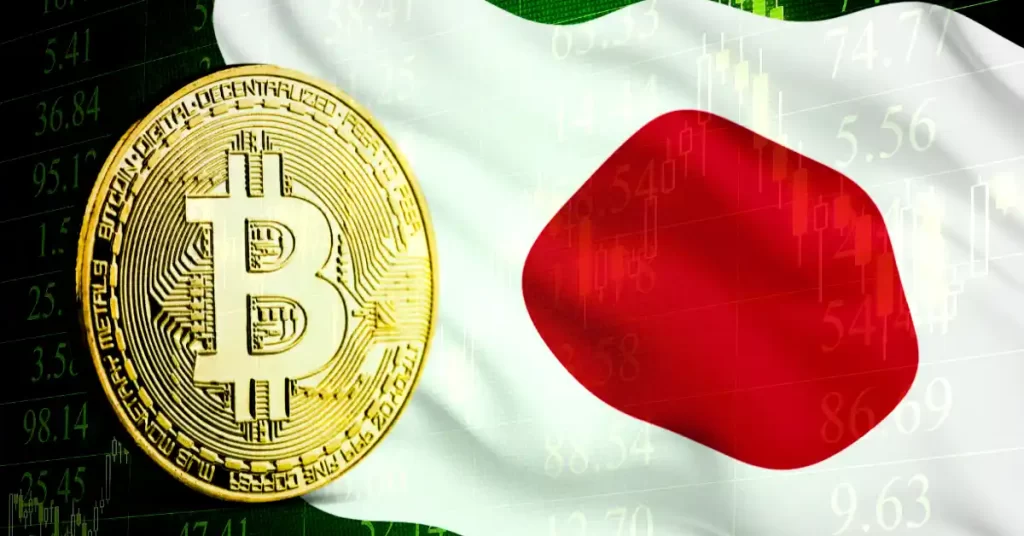Japan’s Crypto Revolution: 20% Tax, Bitcoin ETF Approval, and Stablecoin Launch by 2026
Japan positions itself as Asia's crypto hub with aggressive regulatory overhaul—investors brace for impact.
Tax Shockwaves Ahead
Regulators slap a flat 20% capital gains tax on all crypto transactions—no more loopholes, no more exceptions. The move aims to standardize treatment across asset classes while filling government coffers. Traditional investors groan about compliance headaches; crypto natives just shrug and keep stacking.
Bitcoin ETF Greenlight
Tokyo finally approves spot Bitcoin ETFs after years of regulatory hesitation. Major financial institutions scramble to launch products—expect a flood of institutional money hitting the market by 2026. Because nothing says 'mainstream adoption' like wrapping volatile assets in traditional finance packaging.
Stablecoin Surge
Japan's FSA gives full legal status to yen-pegged stablecoins, paving the way for seamless crypto-fiat integration. Three major banking consortiums already have products in development—because who needs decentralized money when you can have bank-controlled digital yen?
The 2026 timeline feels ambitious for a bureaucracy that still uses fax machines—but if they pull it off, Japan might just become the crypto gateway Asia desperately needs. Or another case of regulators being late to their own party.

Japan is pushing for sweeping financial reforms as part of its goal to become an “asset management nation.”
According to a report from Nikkei, the Financial Services Agency (FSA) is advancing proposals on tax reforms and reclassifying digital assets, potentially paving the way for cryptocurrency exchange-traded funds (ETFs).
Japan Aims to Cut Crypto Taxes
Japanese crypto investors currently face some of the toughest tax rules in the world. Profits from digital assets can be taxed as high as 55%, far higher than the flat 20% applied to stocks and bonds.
The FSA is proposing to bring crypto under that same 20% bracket and let investors carry forward losses for three years. The MOVE is meant to cut the burden on traders, boost market activity, and rebuild trust.
Japan is moving to classify cryptocurrencies as financial products under the Financial Instruments and Exchange Act. This would align digital assets with stocks and bonds, enabling stricter oversight on insider trading and disclosure, and make way for a spot Bitcoin ETF.
The State of Crypto Adoption in Japan
While Japan’s crypto market is growing, domestic trading is set to double from $66.6 billion in 2022. But the retail adoption remains weak, with 88% of residents never owning Bitcoin. Heavy taxes and regulatory uncertainty have been the key barriers.
“In Japan, 88% have never owned bitcoin.”
“In El Salvador, 28% have never owned bitcoin.”
(New research by The @CornellBitcoin Club) pic.twitter.com/x0nla9MaHm
![]()
The FSA hopes that simplified tax rules, combined with regulated crypto ETFs, will finally encourage more people to participate.
Stablecoins and New Investment Products in Japan
Building on these reforms, Japan is also preparing to expand digital finance products. The country Japan may soon approve its first yen-pegged stablecoin, possibly by fall 2025. SBI Holdings, Japan’s financial giant, also plans to launch RLUSD in Japan by early 2026, with SBI VC Trade as distributor.
These moves signal Japan’s ambition to expand digital finance while keeping tighter regulations in place.
FSA’s Roadmap for 2026
Japan’s FSA will set up a new bureau in 2026 to oversee insurance, asset management, and digital finance. The reform follows insurance scandals and aims to restore trust, strengthen oversight, and support growth in emerging markets like crypto.
Japan is also tightening its crypto rules by shifting oversight from payment laws to investment-style regulation. An FSA working group is reviewing stricter disclosure for fundraising tokens, clearer rules for Bitcoin, and tougher measures on fraud, taxation, and investor protection.

